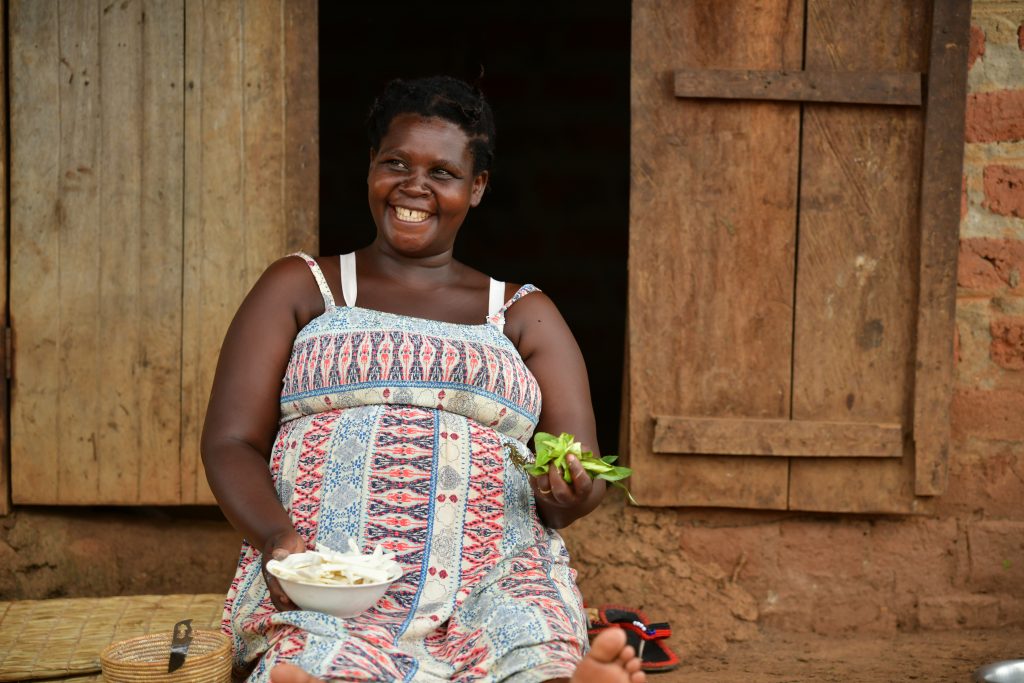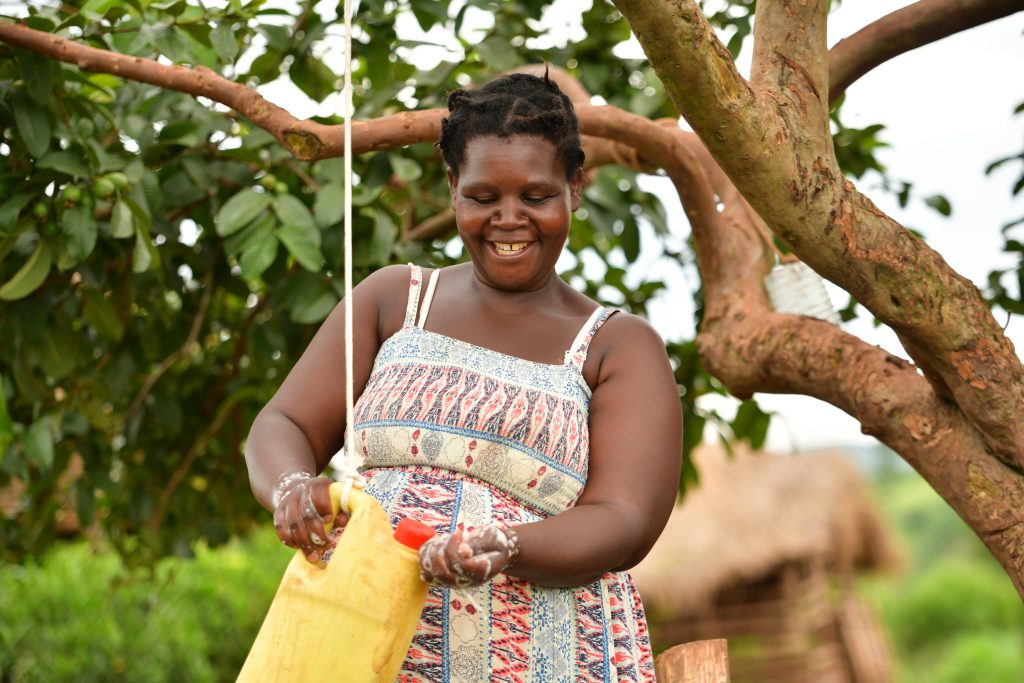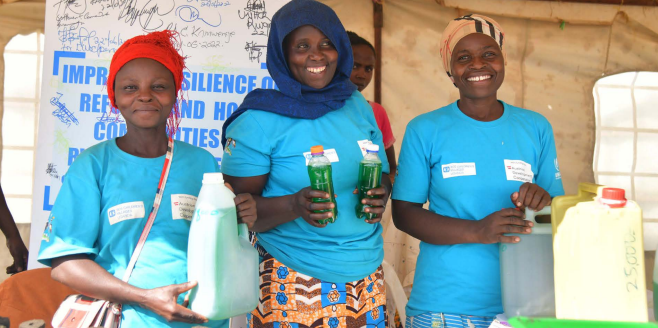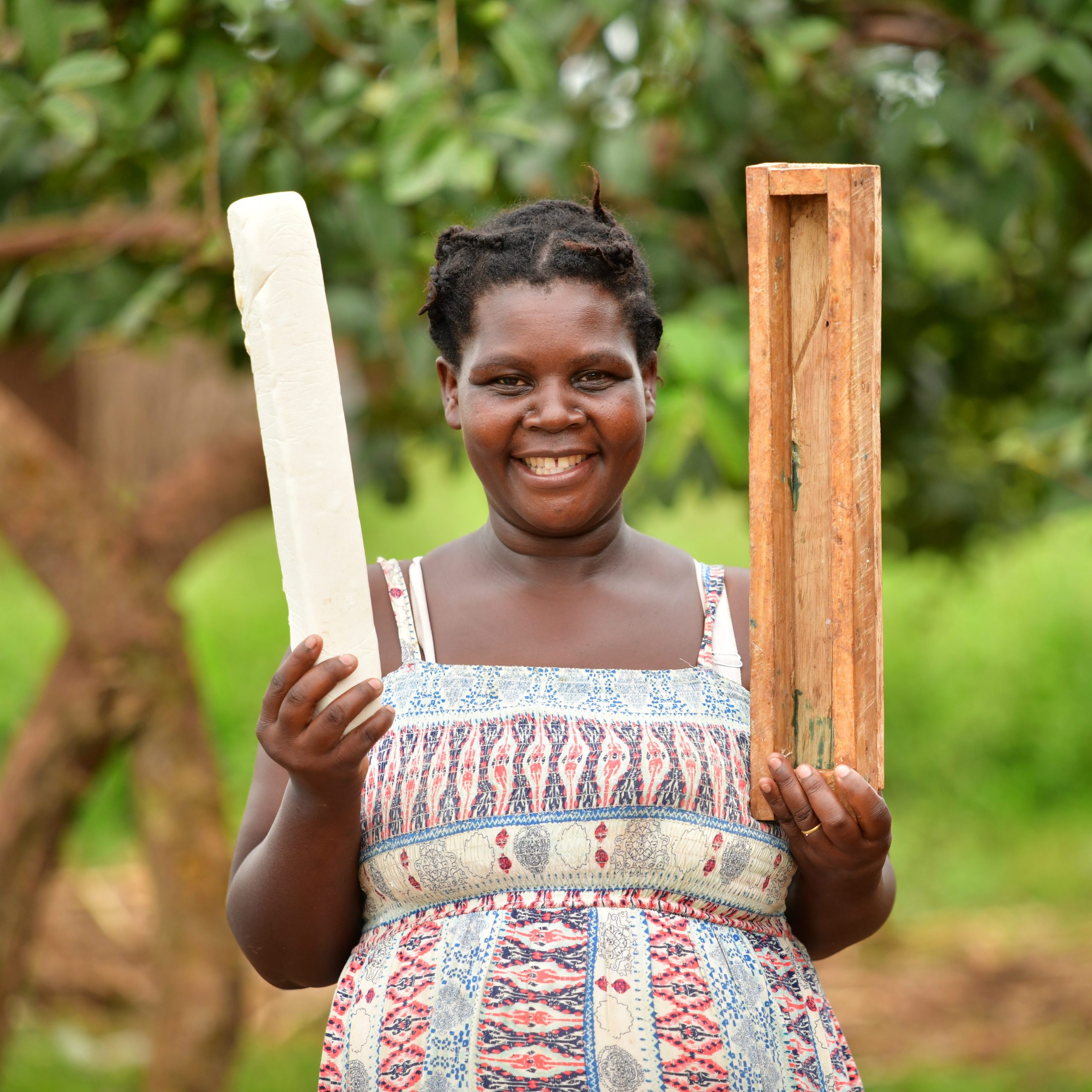At 35 years of age, Violet Kamusime’s life has transformed. She is now able to generate an income for her family, expand her soap-making business, and assist fellow women and youth in her community to build start-ups and become productive citizens.
Violet was always saddened that she couldn’t support her husband whom she thought labored much in fending for their large family. His “ropes” retail business hardly met their needs. He sells the ropes to herdsmen to help in grazing their flock.
“I felt awful seeing him arrive home exhausted physically and mentally. I’ve always believed that the family is too large for him to meet everyone’s demands.” Violet recalls.
Violet was consistently keen on her family’s hygiene. She ensured her children wore tidy clothes, kept clean utensils, and washed their hands regularly. Even during the COVID-19 pandemic, her husband provided a bar of soap once a week to help the family maintain hygiene.
Midway through 2021, Uganda faced a rise in the cost of essential basic home commodities including soap, cooking oil, and salt. The annual core inflation rate for the year 2021 was measured at 2.9 percent by the Uganda National Bureau of Statistics. Low-income households, like Violet’s were severely struck, which meant that the family would be deprived of many of those household necessities and as well as meals.

Affected by the hike, the family could only afford a bar of soap after a month’s earnings. It had more than doubled in price from UGX 3,500 to 9,000 (US$ 1 to 2.4).
In January 2022, Violet’s household enrolled in the United States Agency for International Development-funded Graduating to Resilience Activity, which aims at graduating extremely vulnerable households from food insecurity and fragile livelihoods to self-reliance and resilience.
They were assigned a coach and community-based trainer—two AVSI field staff meant to journey with the household towards graduation and provide a series of trainings that include business coaching, financial literacy, business selection, planning, and management, coaching on nutrition, savings, goal setting, sanitation and hygiene.
“I was more excited about the business skills training and cash support as the coach introduced us to the program; and as the program activities progressed, I learnt even more than what my main interest was.” Violet clarifies.

In July 2022, the Activity organized its second market event, dubbed “My market now and in the future,” which attracted 36 private and public sector companies. The overall objective was to create a linkage between the market actors and the Activity participants for sustainable agricultural and livelihood solutions. Violet, one of the 6,885 Activity participants who attended the event picked interest in soap-making after meeting one of the exhibitors, Tutafanye Group.
“When the lady at the stall demonstrated to us how to make soap at home, I felt it was an opportunity to avoid the costs we were incurring but it also sounded attractive to me to consider it a source of revenue,” Violet explains.
With a few herbs for the scent, a mix of small pieces of soap, and white flour for the color, Violet was ready to explore a new path. Leveraging her business skills and the coaching she received from the Activity, she utilized the available opportunities to get started when she gathered all the resources needed to make her prototype.
“I was happy when it worked. I used the first soap I made to wash clothes, and the foam was the same as the one we bought from the market,” she joyfully explains.
Violet taught her children how to make soap, and they created seven bars that they sold for UGX 5,000 (US$ 1.4) each. Considering that some people in her community couldn’t afford the soap, she decided to offer free training to the women in her village. The astute businesswoman, on the other hand, earns UGX 20,000 (US$ 5) by training economically empowered women groups. She has trained four groups in two months to earn UGX 80,000 (US$ 20)
Violet can now save approximately UGX 20,000 (US$ 5) per week in three savings groups in her village. She is happy to efficiently contribute toward addressing the basic needs of her household; it is no longer a burden on her husband. After receiving the asset transfer— a business cash support from the activity—the couple reinvested in their ropes business and now sells in over ten local markets for a higher revenue and a larger customer base.
Violet’s household has demonstrated high resilience and is optimistic about the future, 11 months after actively partaking in the Graduating to Resilience Activity.

ABOUT: Graduating to Resilience is a USAID Bureau for Humanitarian Assistance-funded Activity led by AVSI Foundation in partnership with American Institute for Research and Trickle Up. The seven-year program (2018 to 2024) operational in Kamwenge District seeks to test the Graduation Approach’s ability to graduate 13,200 economically active but ultra-poor refugee and host community households unable to meet their basic needs consistently without some form of assistance. The program will engage households in two cohorts.
